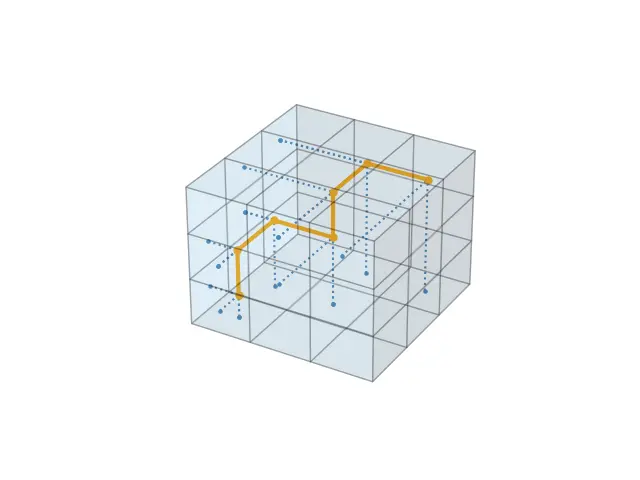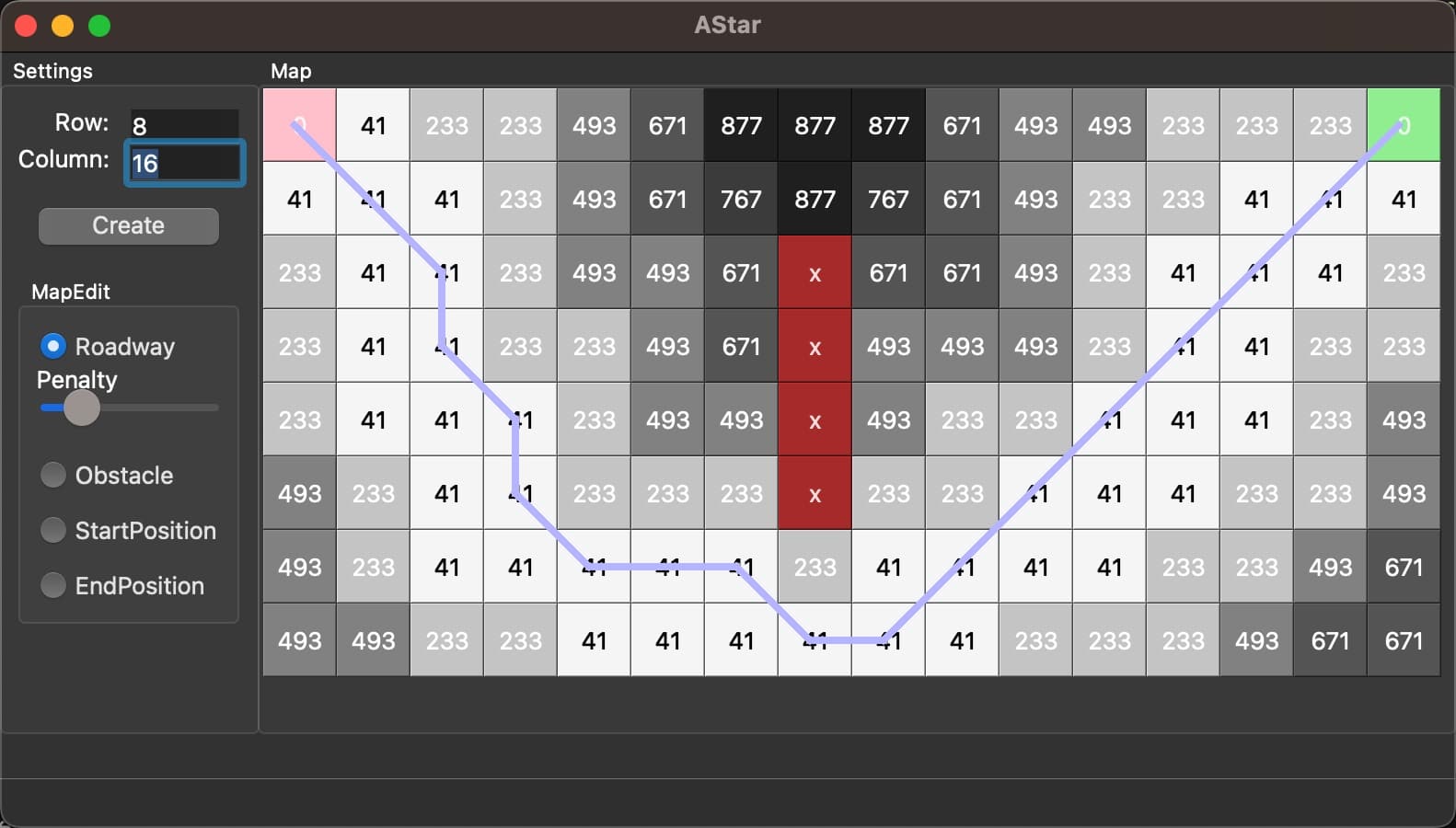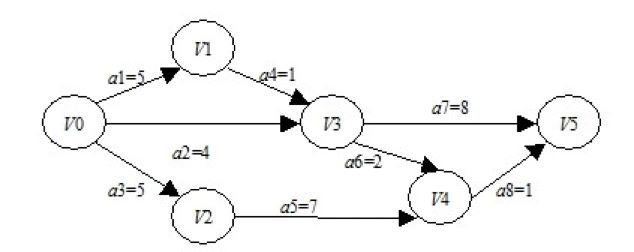第七章 - 函数
函数基本知识
在C++的函数原型中,函数括号为空与在括号中使用关键字void是等效的——意味着没有参数。在ANSI C中,括号为空意味着不指出参数——意味着将在后面定义参数列表。如果需要在C++中表达此含义,需要使用...,即void say_bye(...);
函数参数和按值传递
C++通常按值传递。
cin>>会跳过空格和换行,但cin.get()会读取所有的输入字符。
函数和数组
C++将数组名解释为其第一个元素的地址,但该规则也有一些例外:
数组声明使用数组名来标记存储位置
对数组名使用sizeof将得到整个数组的长度(单位字节)
将&作用于数组名时,将返回整个数组的地址(一个内存块)
当且仅当作用于函数头或函数原型中,int *arr和int arr[]的含义是相同的。
传数组给函数集传数组指针,不违反C++按值传递的规则。
使用const来保护数组,例如void show_array(const double ar[], int n);
除了在参数中传递数组地址和数组长度的方式,我们也可以使用数组区间的方式,即传入第一个元素的地址作为开头,传入最后一个元素后面的地址,作为结尾。这两个指针就划定了一段数组区间。C++模板库(STL)将区间方法广义化了。
int age = 39; const int * pt = &age;表明pt指向一个const int,换句话说,*pt的值为const,不能被修改。但可以直接通过age来修改这一段内存。age是const变量,而pt定义为非const指针,则会导致编译错误。可以思考一下二级指针时的情况。int sloth = 3; int * const finger = &sloth;定义了一个const的指针,这种定义下finger就只能指向sloth
函数和二维数组
int sum(int (*ar2)[4], int size);或者int sum(int ar2[][4], int size);,含义完全相同。
函数和C-风格字符串
传char *指针。
由于C-风格字符串以\0结尾,故使用如下标准方式处理字符串中的字符:
1 2 3 4 while (*str) { statements str++; }
函数和结构
C++默认还是按值传递,会拷贝一份结构,如果要避免大量的内存开销,使用结构地址或者使用引用。
函数和string对象
与C-风格字符串相比,string对象与结构更相似。
函数与array对象
递归
函数指针
double (*pf)(int);。通常,要声明只想特定类型的函数的指针,可以首先编写这种函数的原型,然后用(*pf)替换函数名。double *pf(int);,则声明了一个函数,该函数有着double *类型的返回值。
给函数指针赋值时,两者的特征标以及返回类型必须相同。
使用函数指针时,以下两种写法都是可以的:
(*pf)():原因是既然pf是函数指针,那么*pf就是函数pf():原因是由于函数名时指向该函数的指针,那么指向函数的指针的应为应与函数名相似
两者皆有道理,使用哪种方式看编码规范。
auto让函数指针的定义变得简单:
1 2 auto pc = &pa; const double *(*(*pd)[3 ])(const double *, int ) = &pa;
也可以使用typedef:
1 2 3 4 typedef const double *(*p_fun)(const double *, int );p_fun p1 = f1; p_fun pa[3 ] = {f1, f2, f3}; p_fun (*pd)[3 ] = &pa;
第八章 - 函数探幽
C++内联函数
通常的做法是省略原型,将整个定义放在本应提供原型的地方,并在前面加上关键字inline。
相对于宏定义的简单文本替换来说,内联函数做了更多的检查。
引用变量
相当于给变量起别名,是通过const指针实现的。
1 2 int rats;int & rodents = rats
引用经常被用作函数参数,使得函数中的变量名成为调用程序中的变量的别名。按饮用传递允许被调用的函数能够访问调用函数中的变量。
左值参数是可被引用的数据对象。常规变量和const变量都可视为左值,因为可以通过地址访问他们。用“可修改的左值”和“不可修改的左值”作区分。
如果接受引用参数的函数的意图是修改作为参数传递的变量,现在的C++标准会禁止创建临时变量(或给出警告)。如果不修改则会宽松一些。const引用参数的类型不匹配,则C++将创建类型正确的匿名变量,将函数调用的参数的值传递给该匿名变量,并让参数来引用该变量。
应尽可能使用const
使用&&来声明右值引用:
1 2 3 double && rref = std::sqrt (36.00 );double j = 15.0 ;double && jref = 2.0 * j + 18.5 ;
返回引用时,应注意变量的声明周期。如果实在要返回函数内创建的对象,应使用智能指针。
默认参数
int harpo(int n, int m=4, int j=5)。对于带参数列表的函数,必须从右向左天假默认值。
调用时不能跳过中间参数。
默认参数在函数原型中给出就好了,在定义时给出会出现重复定义的错误。
函数重载
函数重载的关键是函数的参数列表——也称为特征标(function signature)。如果两个函数的参数数目和类型相同,同时参数的排列顺序也相同,则他们的特征标相同。
编译器检查函数特征标时,将把类型引用和类型本身视为同一个特征标。
使用以下技巧可以根据参数是左值、const还是右值来定制函数的行为。
1 2 3 void stove (double &r1) void stove (const double & r2) void stove (double && r3)
函数模板
建立一个交换模板:
1 2 3 4 5 6 7 template <typename AnyType>void Swap (Anytype &a, AnyType &b) Anytype temp; temp = a; a = b; b = temp; }
有些地方会在typename那里换写class,这是旧的C++规范,也是可用的。
如果需要多个将同一种算法用于不同类型的函数,请使用模板。如果不考虑向后兼容的问题,并愿意键入较长的单词,则声明类型参数时,应使用关键字typename而不使用class。
函数原型也应写成模板形式:
1 2 template <typename T>void Swap (T &a, T &b)
函数模板也能重载:
1 2 3 4 5 template <typename T>void Swap (T &a, T &b) template <typename T>void Swap (T *a, T *b, int n)
模板代码在编写时,会假定类型具有某些操作,比如赋值、相加等。所以模板的通用化是有限的。
1 2 3 4 5 6 7 8 9 void Swap (job &, job &) template <typename T>void Swap (T &, T &) template <> void Swap <job>(job &, job &);
其中<job>是可选的,这个写法也是函数模板的具体化:template <> void Swap(job &, job &);
在代码中包含函数模板本身并不会生成函数定义,它只是一个用于生成函数定义的方案。编译器为特定类型生成函数定义时,得到的是模板实例(instantiation)。template void Swap<int>(int, int);。(注意与显式具体化相区别)
编译器通过如下步骤决定使用哪个函数版本:
创建候选函数列表。其中包含与被调用函数的名称相同的函数和模板函数。
使用候选函数列表创建可行函数列表。这些都是参数数目正确的函数,为此有一个隐式转换序列,其中包括实参类型与相应的形参完全匹配的情况。
确定是否有最佳的可行函数。如果有则使用它,否则该函数调用出错。
完全匹配和最佳匹配
使用decltype可以确定类型:
1 2 3 4 5 6 template <class T1, class T2>void ft (T1 x, T2 y) decltype (x+y) xpy = x+y; }
后置返回类型,由于需要使用decltype来确定返回值类型,但是在函数参数列表出来之前decltype中的变量还未定义,所以先使用auto占位,后面再指定类型。
1 2 3 4 5 template <class T1, class T2>auto gt (T1 x, T2 y) -> decltype (x+y) return x + y; }
编程练习
第七章编程练习
1
编写一个程序,不断要求用户输入两个数,直到其中的一个为0。对于每两个数,程序将使用一个函数来计算他们的调和平均数,并将结果返回给main(),而后者将报告结果。调和平均数指的是倒数平均值的倒数,计算公式如下:
调和平均数 = 2 x y ( x + y ) \text{调和平均数}={2xy \over (x+y)}
调和平均数 = ( x + y ) 2 x y
1 2 3 4 5 6 7 8 9 10 11 12 13 14 15 16 17 18 19 20 21 22 23 #include <iostream> using namespace std;double calc_avg (int x, int y) int main () int x, y; while (true ) { cout << "input two numbers: " ; cin >> x >> y; if (x*y == 0 ) break ; cout << "result: " << calc_avg (x, y) << endl; } return 0 ; } double calc_avg (int x, int y) return 2.0 * x * y / (x+y); }
2
不抄题了
1 2 3 4 5 6 7 8 9 10 11 12 13 14 15 16 17 18 19 20 21 22 23 24 25 26 27 28 29 30 31 32 33 34 35 36 37 38 39 40 41 42 43 44 45 46 47 48 49 50 51 52 53 54 55 #include <iostream> using namespace std;const int MAX_LEN = 10 ;int input_score (int s[], int size) void show_score (const int s[], int size) double calc_avg (const int s[], int size) int main () int scores[MAX_LEN] = {}; int size = MAX_LEN; double avg; size = input_score (scores, size); show_score (scores, size); avg = calc_avg (scores, size); cout << "average score: " << avg << endl; return 0 ; } int input_score (int s[], int size) int x; cout << "input atmost 10 scores(-1 to finish): " ; int i; for (i = 0 ; i < size; i++) { cin >> x; if (x < 0 ) break ; s[i] = x; } return i; } void show_score (const int s[], int size) cout << "score: " ; for (int i = 0 ; i < size; i++) { cout << s[i] << " " ; } cout << endl; } double calc_avg (const int s[], int size) double sum; for (int i = 0 ; i < size; i++) { sum += s[i]; } return sum / size; }
3
1 2 3 4 5 6 7 8 9 10 11 12 13 14 15 16 17 18 19 20 21 22 23 24 25 26 27 28 29 30 31 32 33 34 35 36 37 38 #include <iostream> #include <string> using namespace std;struct box { char maker[40 ]; float height; float width; float length; float volume; }; void show_box (const box b) void calc_volume (box *b) int main () box b = {"this is a box." , 1 , 2 , 3 }; show_box (b); calc_volume (&b); show_box (b); return 0 ; } void show_box (const box b) cout << "maker: " << string (b.maker) << endl; cout << "height: " << b.height << endl; cout << "width: " << b.width << endl; cout << "length: " << b.length << endl; cout << "volume: " << b.volume << endl; } void calc_volume (box *b) b->volume = b->height * b->length * b->width; }
4
1 2 3 4 5 6 7 8 9 10 11 12 13 14 15 16 17 18 19 20 21 22 23 24 25 26 27 28 29 30 31 32 33 #include <iostream> using namespace std;long double probablilty (unsigned number, unsigned picks) int main () double field_total_number, choices, range_total_number; cout << "Enter the total number of field choices on the game card and\n" "the number of picks allowd and\n" "the total number of range choices on the game card: " << endl; while ((cin >> field_total_number >> choices >> range_total_number) && choices <= field_total_number) { cout << "you have one chance in " ; cout << probablilty (field_total_number, choices) * probablilty (range_total_number, 1 ); cout << " of winning.\n" ; cout << "Next two numbers (q to quit): " ; } cout << "bye" << endl; return 0 ; } long double probablilty (unsigned number, unsigned picks) long double result = 1.0 ; long double n; unsigned p; for (n = number, p = picks; p > 0 ; n--, p--) { result = result * n / p; } return result; }
5
1 2 3 4 5 6 7 8 9 10 11 12 13 14 15 16 17 18 19 20 21 22 23 24 #include <iostream> using namespace std;long long factorial (unsigned n) int main () int n; while (true ) { cout << "Enter a number: " ; if (!(cin >> n) || n < 0 ) break ; cout << "result: " << factorial (n) << endl; } return 0 ; } long long factorial (unsigned n) if (n == 0 ) return 1 ; return n * factorial (n-1 ); }
6
1 2 3 4 5 6 7 8 9 10 11 12 13 14 15 16 17 18 19 20 21 22 23 24 25 26 27 28 29 30 31 32 33 34 35 36 37 38 39 40 41 42 43 44 45 46 47 48 49 50 51 52 53 #include <iostream> using namespace std;const int MAX_LEN = 10 ;int Fill_array (double a[], int size) void Show_array (const double a[], int size) void Reverse_array (double a[], int size) int main () double a[MAX_LEN] = {}; int size = MAX_LEN; size = Fill_array (a, size); Show_array (a, size); Reverse_array (a, size); Show_array (a, size); Reverse_array (&a[1 ], size-2 ); Show_array (a, size); return 0 ; } int Fill_array (double a[], int size) int i; double x; for (i = 0 ; i < size; i++) { cout << "input a double value (s to stop): " ; if (!(cin >> x)) break ; a[i] = x; } return i; } void Show_array (const double a[], int size) cout << "array: " ; for (int i = 0 ; i < size; i++) { cout << a[i] << " " ; } cout << endl; } void Reverse_array (double a[], int size) int i = 0 , j = size-1 ; while (i < j) { double temp = a[i]; a[i] = a[j]; a[j] = temp; i++; j--; } }
7
1 2 3 4 5 6 7 8 9 10 11 12 13 14 15 16 17 18 19 20 21 22 23 24 25 26 27 28 29 30 31 32 33 34 35 36 37 38 39 40 41 42 43 44 45 46 47 48 49 50 51 52 53 54 55 56 57 58 59 60 61 62 63 64 65 66 67 68 69 70 71 72 73 74 75 76 77 78 79 80 81 #include <iostream> const int Max = 5 ;double * fill_array (double ar[], int limit) void show_array (const double ar[], double * end) void revalue (double r, double ar[], double * end) int main () using namespace std; double properties[Max]; double * end = fill_array (properties, Max); show_array (properties, end); if (end > properties) { cout << "Enter revaluation factor: " ; double factor; while (!(cin >> factor)) { cin.clear (); while (cin.get () != '\n' ) continue ; cout << "Bad input; Please enter a number: " ; } revalue (factor, properties, end); show_array (properties, end); } cout << "Done.\n" ; return 0 ; } double * fill_array (double ar[], int limit) using namespace std; double temp; int i; double *p = ar; for (i = 0 ; i < limit; i++) { cout << "Enter value #" << (i + 1 ) << ": " ; cin >> temp; if (!cin) { cin.clear (); while (cin.get () != '\n' ) continue ; cout << "Bad input; input process terminated.\n" ; break ; } else if (temp < 0 ) break ; *p = temp; p++; } return p; } void show_array (const double ar[], double * end) using namespace std; const double *p = ar; for (int i = 0 ; p != end; i++, p++) { cout << "Property #" << (i + 1 ) << ": $" ; cout << *p << endl; } } void revalue (double r, double ar[], double * end) for (double *p = ar; p != end; p++) *p *= r; }
8
1 2 3 4 5 6 7 8 9 10 11 12 13 14 15 16 17 18 19 20 21 22 23 24 25 26 27 28 29 30 31 32 33 34 35 36 37 38 39 40 41 42 43 44 45 46 47 48 49 50 51 52 53 #include <iostream> using namespace std;const int Seasons = 4 ;const char *Snames[] = {"Spring" , "Summer" , "Fall" , "Winter" };struct Expense { double value[Seasons]; }; void fill (double pa[]) void show (double da[]) void fill (Expense &e) void show (Expense &e) int main () double expenses[Seasons]; Expense e; fill (expenses); show (expenses); fill (e); show (e); return 0 ; } void fill (double pa[]) for (int i = 0 ; i < Seasons; i++) { cout << "Enter " << Snames[i] << " expenses: " ; cin >> pa[i]; } } void show (double da[]) double total = 0.0 ; cout << "\nEXPENSES\n" ; for (int i = 0 ; i < Seasons; i++) { cout << Snames[i] << ": $" << da[i] << endl; total += da[i]; } cout << "Total Expenses: $" << total << endl; } void fill (Expense &e) fill (e.value); } void show (Expense &e) show (e.value); }
9
1 2 3 4 5 6 7 8 9 10 11 12 13 14 15 16 17 18 19 20 21 22 23 24 25 26 27 28 29 30 31 32 33 34 35 36 37 38 39 40 41 42 43 44 45 46 47 48 49 50 51 52 53 54 55 56 57 58 59 60 61 62 63 64 65 66 67 68 69 70 71 72 73 74 75 76 77 78 79 80 81 82 83 84 85 86 87 88 89 90 91 #include <iostream> using namespace std;const int SLEN = 30 ;struct student { char fullname[SLEN]; char hobby[SLEN]; int ooplevel; }; int getinfo (student pa[], int n) void display1 (student st) void display2 (const student * ps) void display3 (const student pa[], int n) int main () cout << "Enter class size: " ; int class_size; cin >> class_size; while (cin.get () != '\n' ) continue ; student * ptr_stu = new student[class_size]; int entered = getinfo (ptr_stu, class_size); for (int i = 0 ; i < entered; i++) { display1 (ptr_stu[i]); display2 (&ptr_stu[i]); } display3 (ptr_stu, entered); delete [] ptr_stu; cout << "Done" << endl; return 0 ; } int getinfo (student pa[], int n) int i; cout << "You can enter up to " << n; cout << " students' messages (enter to terminate)." << endl; for (i = 0 ; i < n; i++) { cout << "Student #" << i + 1 << ": " << endl; cout << "Enter the fullname(a blank line to quit): " ; cin.getline (pa[i].fullname, SLEN); if ('\0' == pa[i].fullname[0 ]) { break ; } cout << "Enter the hobby: " ; cin.getline (pa[i].hobby, SLEN); cout << "Enter the ooplevel: " ; while (!(cin >> pa[i].ooplevel)) { cin.clear (); while (cin.get () != '\n' ) continue ; cout << "Please enter an number: " ; } cin.get (); } return i; } void display1 (student st) cout << "\nName: " << st.fullname << endl; cout << "Hobby: " << st.hobby << endl; cout << "Ooplevel: " << st.ooplevel << endl; } void display2 (const student *ps) cout << "\nName: " << ps->fullname << endl; cout << "Hobby: " << ps->hobby << endl; cout << "Ooplevel: " << ps->ooplevel << endl; } void display3 (const student pa[], int n) if (n > 0 ) { cout << "\nAll students' information:" << endl; for (int i = 0 ; i < n; i++) { display2 (&pa[i]); } } }
10
1 2 3 4 5 6 7 8 9 10 11 12 13 14 15 16 17 18 19 20 21 22 23 24 25 26 27 28 29 30 31 32 33 34 35 36 37 38 39 40 41 42 43 44 45 46 47 48 49 50 #include <iostream> using namespace std;typedef double (*operation_func) (double , double ) double add (double x, double y) double sub (double x, double y) double mul (double x, double y) double div (double x, double y) double calculate (double x, double y, operation_func f) int main () operation_func pf[] = {add, sub, mul, div}; double x, y; while (true ) { cout << "Enter two numbers (q to quit): " ; if (!(cin >> x >> y)) break ; for (int i = 0 ; i < 4 ; i++) { cout << calculate (x, y, pf[i]) << endl; } } return 0 ; } double add (double x, double y) cout << x << "+" << y << "=" ; return x+y; } double sub (double x, double y) cout << x << "-" << y << "=" ; return x-y; } double mul (double x, double y) cout << x << "*" << y << "=" ; return x*y; } double div (double x, double y) cout << x << "/" << y << "=" ; return x/y; } double calculate (double x, double y, operation_func f) return f (x, y); }
第八章编程练习
1
1 2 3 4 5 6 7 8 9 10 11 12 13 14 15 16 17 18 19 20 21 22 23 24 25 26 27 #include <iostream> #include <string> using namespace std;void print_str (string *str, int n) int main () string s; int n; cout << "Enter a string: " ; getline (cin, s); cout << "Enter a number: " ; cin >> n; print_str (&s, n); return 0 ; } void print_str (string *str, int n) cout << n << " string left: " << *str << endl; if (n > 1 ) { print_str (str, --n); } }
2
1 2 3 4 5 6 7 8 9 10 11 12 13 14 15 16 17 18 19 20 21 22 23 24 25 26 27 28 29 30 31 32 33 #include <iostream> #include <string> using namespace std;struct CandyBar { string brand; double weight; int heat; }; CandyBar & create_candybar (CandyBar &c, const char *b = "Millennium Munch" , const double w = 2.85 , const int h = 350 ) int main () CandyBar c; create_candybar (c); cout << c.brand << ", " << c.weight << ", " << c.heat << endl; create_candybar (c, "hello" , 1 , 2 ); cout << c.brand << ", " << c.weight << ", " << c.heat << endl; return 0 ; } CandyBar & create_candybar (CandyBar &c, const char *b, const double w, const int h) c.brand = string (b); c.weight = w; c.heat = h; return c; }
3
1 2 3 4 5 6 7 8 9 10 11 12 13 14 15 16 17 18 19 20 21 22 23 24 25 26 #include <iostream> #include <string> using namespace std;string &capitalization (string &s) ;int main () string s; while (true ) { cout << "Enter a string (q to quit): " ; getline (cin, s); if (s == "q" ) break ; cout << capitalization (s) << endl; } cout << "Bye." << endl; return 0 ; } string &capitalization (string &s) { for (auto &c : s) { c = toupper (c); } return s; }
4
1 2 3 4 5 6 7 8 9 10 11 12 13 14 15 16 17 18 19 20 21 22 23 24 25 26 27 28 29 30 31 32 33 34 35 36 37 38 39 40 41 42 43 44 45 46 47 48 49 #include <iostream> using namespace std;#include <cstring> struct stringy { char * str; int ct; }; void set (struct stringy &in_stringy, char * in_string) void show (const struct stringy &in_stringy, int print_times = 1 ) void show (const char * str, int print_times = 1 ) int main () stringy beany; char testing[] = "Reality isn't what it used to be." ; set (beany, testing); show (beany); show (beany, 2 ); testing[0 ] = 'D' ; testing[1 ] = 'u' ; show (testing); show (testing, 3 ); show ("Done!" ); return 0 ; } void set (struct stringy &in_stringy, char * in_string) int string_length = strlen (in_string); in_stringy.str = new char (string_length + 1 ); strcpy (in_stringy.str, in_string); in_stringy.ct = string_length; } void show (const struct stringy &in_stringy, int print_times) for (int i = 0 ; i < print_times; i++) { cout << "member string of struct stringy: " << in_stringy.str << endl; } } void show (const char * str, int print_times) for (int i = 0 ; i < print_times; i++) { cout << "Print char string: " << str << endl; } }
5
1 2 3 4 5 6 7 8 9 10 11 12 13 14 15 16 17 18 19 20 21 22 23 24 25 26 #include <iostream> using namespace std;template <typename T>T max5 (T arr[5 ]) ;int main () int a[] = {1 , 2 , 3 , 4 , 5 }; double b[] = {2 , 3 , 4 , 5 , 6 }; cout << max5 (a) << endl; cout << max5 (b) << endl; return 0 ; } template <typename T>T max5 (T arr[5 ]) { T max = arr[0 ]; for (int i = 1 ; i < 5 ; i++) { if (arr[i] > max) max = arr[i]; } return max; }
6
1 2 3 4 5 6 7 8 9 10 11 12 13 14 15 16 17 18 19 20 21 22 23 24 25 26 27 28 29 30 31 32 33 34 35 36 37 38 39 40 41 42 #include <iostream> using namespace std;template <typename T>T maxn (T arr[], int n) ;template <> const char * maxn (const char *arr[], int n) int main () int a[] = {1 , 2 , 3 , 4 , 5 , 6 }; double b[] = {4 , 3 , 2 , 1 }; const char *c[] = {"hello" , "a" , "b" , "world!" , "c" }; cout << maxn (a, 6 ) << endl; cout << maxn (b, 4 ) << endl; cout << maxn (c, 5 ) << endl; return 0 ; } template <typename T>T maxn (T arr[], int n) { T max = arr[0 ]; for (int i = 1 ; i < n; i++) { if (arr[i] > max) max = arr[i]; } return max; } template <> const char * maxn (const char *arr[], int n) int max_len = strlen (arr[0 ]); const char * longest_str = arr[0 ]; for (int i = 1 ; i < n; i++) { int l = strlen (arr[i]); if (l > max_len) { max_len = l; longest_str = arr[i]; } } return longest_str; }
7
1 2 3 4 5 6 7 8 9 10 11 12 13 14 15 16 17 18 19 20 21 22 23 24 25 26 27 28 29 30 31 32 33 34 35 36 37 38 39 40 41 42 43 44 45 46 47 48 49 50 51 52 53 54 55 56 57 58 59 60 61 62 63 64 65 #include <iostream> using namespace std;template <typename T>T SumArray (T arr[], int n) ;template <typename T>T SumArray (T * arr[], int n) ;struct debts { char name[50 ]; double amount; }; int main () int thing[6 ] = { 13 , 31 , 103 , 301 , 310 , 130 }; int int_sum = 0 ; struct debts mr_E[3 ] = { {"Ima Wolfe" , 2400.0 }, {"Ura Foxe" , 1300.0 }, {"Iby Stout" , 1800.0 } }; double *pd[3 ]; double double_sum = 0.0 ; for (size_t i = 0 ; i < 3 ; i++) { pd[i] = &mr_E[i].amount; } int_sum = SumArray (thing, 6 ); double_sum = SumArray (pd, 3 ); cout << "Sum of int array: " << int_sum << endl; cout << "Sum of double* array: " << double_sum << endl; return 0 ; } template <typename T>T SumArray (T arr[], int n) T sum = arr[0 ]; for (int i = 1 ; i < n; i++) { sum += arr[i]; } return sum; } template <typename T>T SumArray (T * arr[], int n) T sum = *(arr[0 ]); for (int i = 1 ; i < n; i++) { sum += *(arr[i]); } return sum; }











